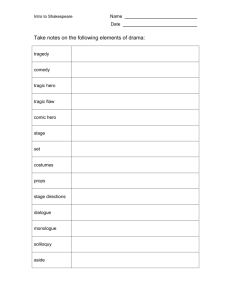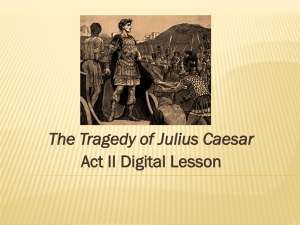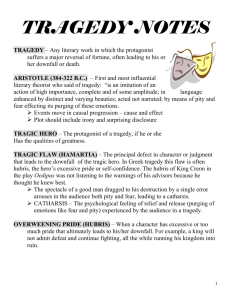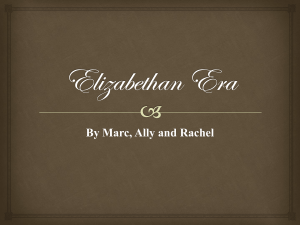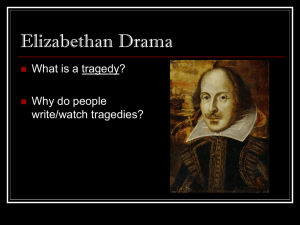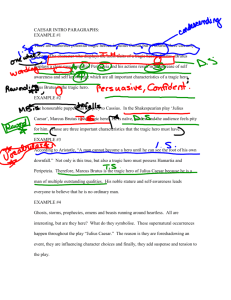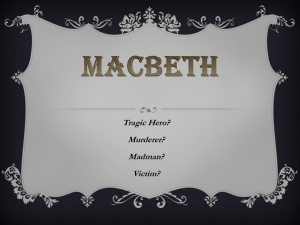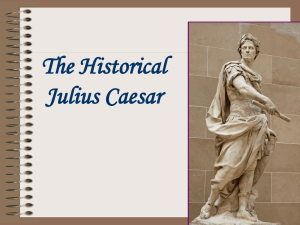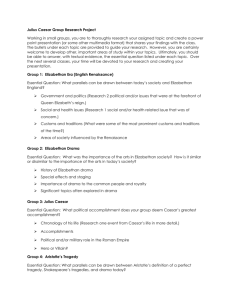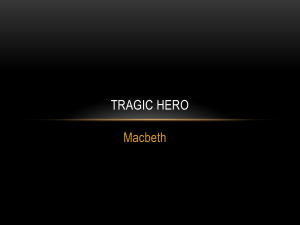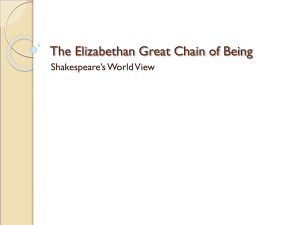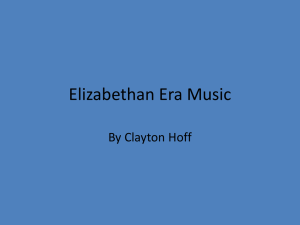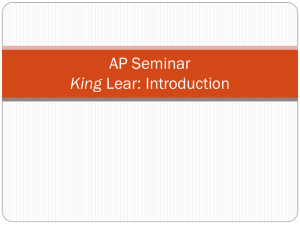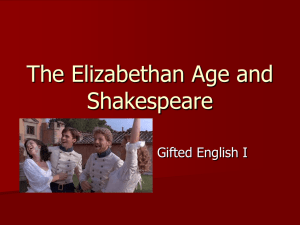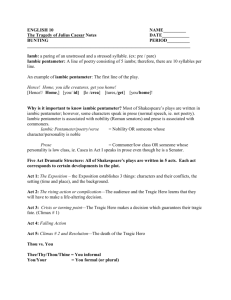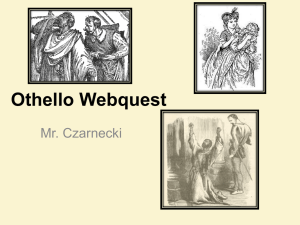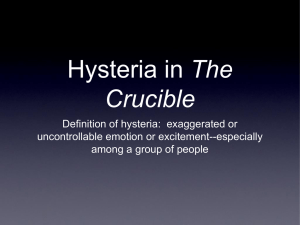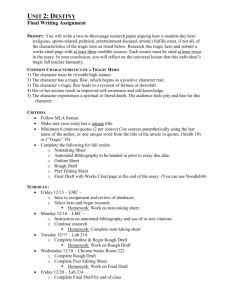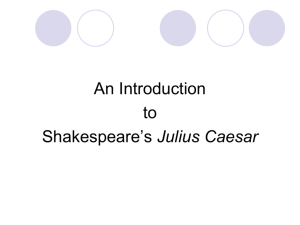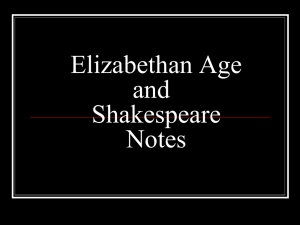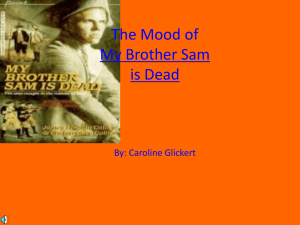Shakespeare*s Julius Caesar
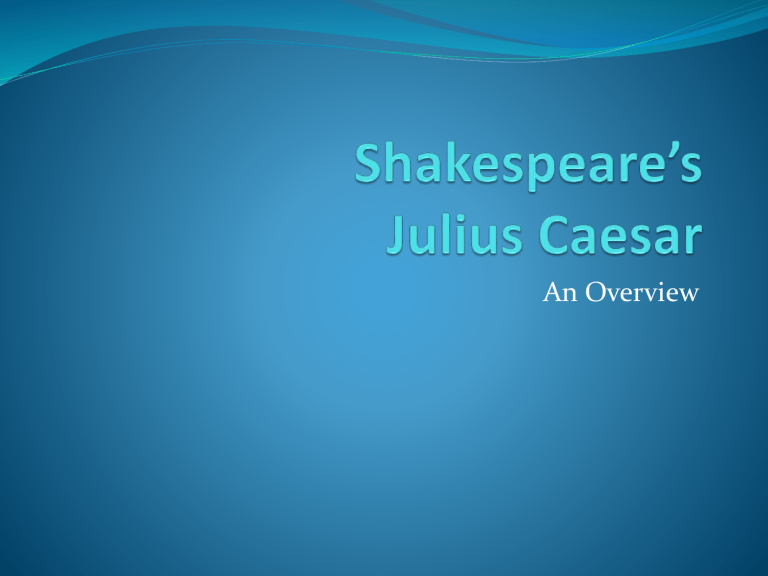
An Overview
Elizabethan Times
Time for heroes—Men were:
Witty, eloquent
Examined own nature
Adventurers, fencers, poets, conversationalists
• Women had lower social status, despite nation being run by a Queen
Elizabethan Times
Great Chain of Being (social structure)
•
Royalty, nobility, peasantry considered different species from each other
Upset in Great Chain portended (warned) by signs and nature
Weather, unusual animal behavior, etc.
Divine Rule of Kings
Reigning monarch was God’s agent
Rebelling against monarch = rebelling against God; upset of the great chain
Elizabethan Times
England in a succession crisis
Queen Elizabeth left no heirs, refused to marry
People feared another War of the Roses (long bloody battle-rival families fighting for crown)
British people very concerned about this problem
• Shakespeare could not comment directly on England’s political affairs; did so indirectly in theater
Elizabethan Times
1599 very important year
Globe Theater completed
Julius Caesar first performed
• Caesar very popular subject
Writers saw numerous similarities to England’s situation
Political uncertainty due to lack of heir
First attempts at colonization (Roanoke 1585)
Shakespeare’s Caesar
Primary source for information on Caesar
Plutarch’s Lives of Noble Grecians and Romans
• Written in blank verse (unrhymed iambic pentameter)
• Often shifts from poetry to prose
Create mood, establish the status of a character, etc.
Shakespeare’s Caesar
Play begins in medias res (in the middle of something)
Figurative language
Simile
Metaphor
Irony
Dramatic Irony: audience knows something characters do not
Situational Irony: when what happens is different than what is expected
Verbal Irony: speaker says something but means another
The Tragic Hero
Aristotle’s definition
A god, demi-god, hero, high-ranking official
Rises to high position then falls from position, usually to utter desolation or death
• Two forces equally powerful in classic tragedy
- Hero’s tragic flaw (hamartia)
- Fate
Tragic Hero
During Renaissance, people felt less like pawns, more in charge of their destinies
Elizabethan tragic hero responsible for own downfall, rather than fate
“Waste of human potential” tragic to Elizabethans
Contrast between destiny and free will recurring theme in play
